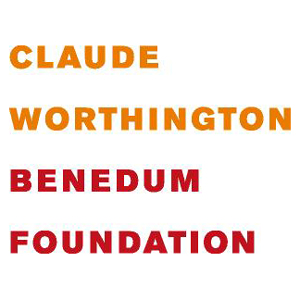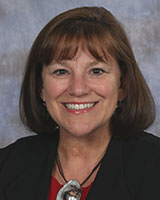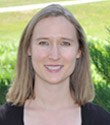Jan 20, 2021
Claude Worthington Benedum Foundation: Taking a Leadership Role and Building Trust
Q&A with Kim Barber Tieman, program director for health and human services for the Claude Worthington Benedum Foundation
by Allee Mead
The first of three articles in the series During Pandemic, Rural Health Foundations Provide Financial Support, Technical Assistance, and Other Services
Overview of Claude Worthington Benedum Foundation's COVID-Related Activities
 The
Claude Worthington
Benedum Foundation:
The
Claude Worthington
Benedum Foundation:
- Paused its regular grant making to focus on immediate COVID relief and support existing safety net programs
- Set up a grant capture team to mine and send out information concerning federal and other funding opportunities and funded grant writers
- Convened with other health funders to determine who could fund activities in different areas of West Virginia, ensuring that each county was covered
- Worked with a faith-based organization and the West Virginia Department of Health and Human Resources and funded three mobile units to complete COVID testing in communities
What is your foundation doing to support rural communities during the pandemic?

The Benedum Foundation is a regional foundation located in Pittsburgh. We serve four counties in Pennsylvania and we serve the state of West Virginia. Our health focus is across the state of West Virginia. Our priority areas for the last few years have been children's health and school readiness, improving the oral health infrastructure in the state, and preventive services and access to healthcare, which is really our response to the chronic diseases that are prevalent in the state.
We also fund some opportunity grants. Those are things that Benedum, being the largest funder in the state, sometimes must take on. People expect us to lead on issues that are difficult, and people expect us to have a leadership role in that. And so, sometimes we must step forward to help address something that comes up, like COVID. Historically, it would be supporting West Virginia VOAD (Voluntary Organizations Active in Disaster) to alleviate suffering from floods or other disasters. Because we built that infrastructure, it was in place for COVID, so we were able to use that for a public health disaster as we would have for a natural disaster.
West Virginia is the only state that's entirely in Appalachia, all 55 of our counties. The Benedum Foundation's health agenda is across the state. We traditionally work on policy, systems, and environmental changes, meaning we wouldn't usually fund one health department, but we'd want to think about how we can strengthen the entire infrastructure of health departments around the state.
So how could we do a system change for that? That's the approach that we took with COVID. I remember vividly: It was March, Friday the 13th ― the last day that I was in public with people ― and it was with our group of West Virginia health funders. We were all together when the news broke that this was happening. So, we started meeting on a regular basis, and Benedum basically said, "Let's stop all of our regular planned grant making."
We looked at alleviating the social determinants of health and basic needs, which a lot of people did, such as food, PPE [personal protective equipment], shelter, economic supports, things like that. How do we hold up our childcare centers? Because if you had nowhere to safely care for your children, you couldn't go to work. And then we looked at system levels. How do we shore up our healthcare safety nets? One in five West Virginians get their healthcare at a Federally Qualified Health Center. A lot of people also use free clinics, and a lot of people use the local health departments.
We're able to call the state systems we fund, like the West Virginia Primary Care Association or the WV Association of Local Health Departments or the West Virginia Association of Free Clinics, and say, "What's the system change that we could help each of you with to shore up the immediate need?" And those folks were doing contact tracing. They were doing the drive-through clinics; they were testing people. They were getting supplies out to folks ― PPE and safety measures. The next phase was then: What's the federal opportunity that we can capture? And how do we help the organizations we fund be poised and ready?
A specific example is that Federally Qualified Health Centers weren't being reimbursed for telemedicine in all avenues before the pandemic, and so they weren't prepared to do telehealth. We really helped with infrastructure building across the West Virginia health funders, but Benedum took the lead in that because we wanted them to maximize their federal dollars. If they didn't have the infrastructure to do telehealth, they needed to purchase that and get that up and going so that they could then bill and serve their patients ― because they were going to serve them anyway, right? So we wanted to make sure that telehealth and tele-mental health, oral health, and medical interventions happened.
We also looked at:… Who are the people who are probably not being served the most?… Are we helping people who are homeless and shut-in seniors? Because seniors were a tough population ― because of the rural nature, they were more hesitant to let people come to their house, to even let them drop things off. A lot of them were not into Meals on Wheels because they were afraid that they could get the virus that way. And a lot of our Meals on Wheels volunteers were older, so we didn't have the drivers to drive that food. We really did some concerted effort of getting the protein-rich and diet-specific meals to seniors. We also worked with communities serving persons with substance use disorder because a lot of those folks were the first to lose jobs. In addition, persons who were homeless or at risk of homelessness were often the ones put out of facilities first or didn't have safety in a facility or the facility wasn't staffed.
We also supported outreach efforts. How do we do outreach in the right places? How do we work with the faith community to make sure that we're doing testing in those communities?
What other services would you like to highlight?
We did set up a grant capture team with a statewide intermediary. We funded an organization so that they could be mining all of the information that was coming out through the CARES Act and other opportunities, particularly federal, and then the dollars that came into the state. We funded people to mine the data, do short info pieces, and send them out to our statewide network systems like rural hospitals and the West Virginia Rural Health Association. We've funded them to do updates to their websites so there'd be current, accurate information about the virus or how to get tested, where to get PPE, and how to find funding. And we then funded the grant writers for people who needed them. We also serve as match for grants if people needed to match state or federal grants.
We reached out to all of our existing grantees and said, "If you need a no-cost extension, if you need a budget revision, if you need to reallocate your existing budget to have a COVID response, we will simplify all those processes and we will do those with emails, not within the online system." We tried to make things simpler for people. When the health funders started convening weekly in the beginning, we conducted mapping of where our geographic areas and our priority areas were. We created a map of the state and who could serve each county. There's only a few of us who can do statewide funding, so then we would parse out opportunities to collectively fund identified needs. If we wanted to fund a health department or free clinic infrastructure change or an intervention, then each foundation would take the ones in their region and we [Benedum] would take whatever was left, for example.
How do we now do system changes to get us back on track? Everything that was happening before COVID is still happening. We still have persons overdosing. We still have chronic disease. We still have children needing immunizations. So, we said, 'How do we keep those things from going off the rails?'
The last piece of the shift has been: How do we now do system changes to get us back on track? Everything that was happening before COVID is still happening. We still have persons overdosing. We still have chronic disease. We still have children needing immunizations. So, we said, "How do we keep those things from going off the rails?" An example is that we just funded a back on track program to get kids caught up on immunizations, with schools being intermittent or closed and kids being homeschooled. Children really have suffered with getting their immunizations. We're trying to get that caught up.
We funded $4 million with 38 direct COVID grants. And we funded about 13 other COVID-impacted areas, such as: How do we bring arts communities back online? How do we help build stages for more interventions to happen outside, whether they're a health intervention or a community event or an arts event? We also helped farmers markets so that we continue to have fresh fruits and vegetables.
And the one population that we did also specifically reach out to is grand families, kinship families, and foster parents, because we have one of the highest percent of children per capita living in foster care, mostly because of the substance use disorder crisis we've had. Those families really struggled with getting their children's healthcare needs met, so we really did concerted efforts of outreach to them.
If you don't have food, clothing, shelter ― Maslow's hierarchy ― then you can't go to work, you can't focus, and you can't have a strong community. The whole work infrastructure has been so interrupted and, in a state where we struggle with broadband, it's been really difficult for our families because people are driving to fast food restaurants to have a hotspot to do homework and they're doing shifts and then they're trying to work from home. There's a bunch of people, a preponderance of people, who don't have access to broadband.
We don't give grants and walk away ― We give you a grant and we move in with you. We roll our sleeves up and work each day.
And then how do we plan for the future? We've got to figure out how to provide COVID immunizations across the state. How do we get that vaccine out to the public? How do we educate folks? Benedum is not a typical kind of foundation. We don't give grants and walk away ― We give you a grant and we move in with you. We roll our sleeves up and work each day. We're on the state response teams; I'm getting daily briefings from the governor's office so that we know how we can make that system change.
What else would you like to share?
I was proud of the collaborative effort we did with the West Virginia health funders, getting those organizations to work together, because we all have different boards. We all have different priorities, different giving areas, but I feel proud that we were able to redirect $4 million. We do this partnering work all the time, but we really dug our heels in. We would get proposals and we would pitch them to one another and say, "Here's what this need is. We can cover this, but we can't cover that." And our boards were very responsive to provide a state response.
Childcare centers had to throw out all their toys and had to get all the cleaning products. We had folks going to the dollar store every day trying to get cleaning products. Well, that's not a good use of your time. So, we funded case management. There's a national VOAD and every state has one and they are mobilized to feed people and keep you safe. And that's where we manage PPE. Every week or so, I get an email from VOAD that says, "Hey, we just got resources from FEMA. Which clinics need N95 masks right now?" And we were able to deploy those items. Investing in the infrastructure of core intermediary organizations so they can be nimble and organized when something bad happens really has paid off for our state.
That's the joy and the beauty of rural America: We really do know how to help and care for one another. Those relationships make things happen when we have times of need.
That's the joy and the beauty of rural America: We really do know how to help and care for one another. Those relationships make things happen when we have times of need.
Opinions expressed are those of the interviewee and do not necessarily reflect the views of the Rural Health Information Hub.

